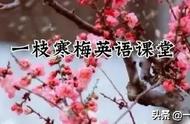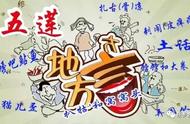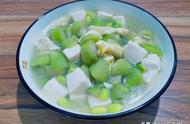A legend has it that at the end of the Eastern Han Dynasty (AD25-220), "Medical Saint" Zhang Zhongjing saved many people in Henan province from a typhoid epidemic and their ears' from being frostbitten around Start of Winter.
传说在东汉末年(公元25-220年),“医圣”张仲景在河南治好了很多伤寒病人,还让他们的耳朵在立冬之际免于生冻疮。
He cooked mutton, hot peppers and herbs to dispel the cold and increase body heat. He wrapped these ingredients into a dough skin and made them into an ear shape. Since then, people have learned to make the food which became known as "dumpling". Today there is still a saying that goes "Eat dumplings on Start of Winter Day, or your ears will be frostbitten".
张仲景的方法是用羊肉、辣椒和驱寒暖身的药草一起炖煮,煮熟后用面皮包成耳朵形状。从那以后,人们学会了制作这种食物,也就是后来俗称的“饺子”。时至今日仍然有“立冬不端饺子碗,冻掉耳朵没人管”的说法。
Yifan Festival of Mulam Ethnic Minority
仫佬族的依饭节

Actors perform a dance during the Yifan festival in Luocheng, Southwest China's Guangxi Zhuang autonomous region.[Photo/Xinhua]
Yifan Festival is one of the most important festivals of the Mulam ethnic minority in Guangxi Zhuang autonomous region. It is held around the Start of Winter every three to five years and lasts one to three days. The festival includes inviting the god, offering sacrifices, asking the god to enjoy the sacrifice, singing praise of the god, drinking wine with the blood of chicken, and sending the god off.
依饭节是广西壮族自治区的仫佬族最隆重的节日之一。每隔三到五年立冬前后举行一次,为期一至三天。节庆活动包括请圣、占牲、劝圣、唱神、合兵和送圣。
"Nourishing the winter"
“立冬补冬”

On the first day of Start of Winter, there is a custom, "nourishing the winter", in Southeast China in places such as Fujian, Guangdong and Taiwan provinces. To prepare for the oncoming cold winter, people there like to eat high-calorie food such as chicken, duck, beef, mutton, and fish, which are usually stewed with the four Chinese medicines: angelica, ligusticum wallichii, Chinese herbaceous peony and rehmannia glutinosa libosch, to enhance the effectiveness of the nourishment.
在立冬这天,中国东南部的一些地区,比如福建、广东、台湾省,都有“补冬”习俗。为了应对即将到来的寒冬,那里的人会吃鸡、鸭、牛、羊、鱼肉这样的高热量食物,而且通常都会加入当归、川芎、白芍、熟地黄这四味中药炖成“四物汤”来提高滋补效果。
Eating Chinese pumpkins
吃倭瓜

In Tianjin, on the first day of Start of Winter, people eat dumplings stuffed with Chinese pumpkins (wogua). It is a common vegetable in North China. Generally, the pumpkins are bought in the summer and stored until the Start of Winter when they are taken out.
在天津,人们在立冬这天会吃倭瓜馅儿饺子。这是中国北方常见的一种蔬菜。一般倭瓜都是在夏季买的,储存到立冬时节再拿出来。
Eating tuanzi in Wuxi
无锡人冬至吃团子
















